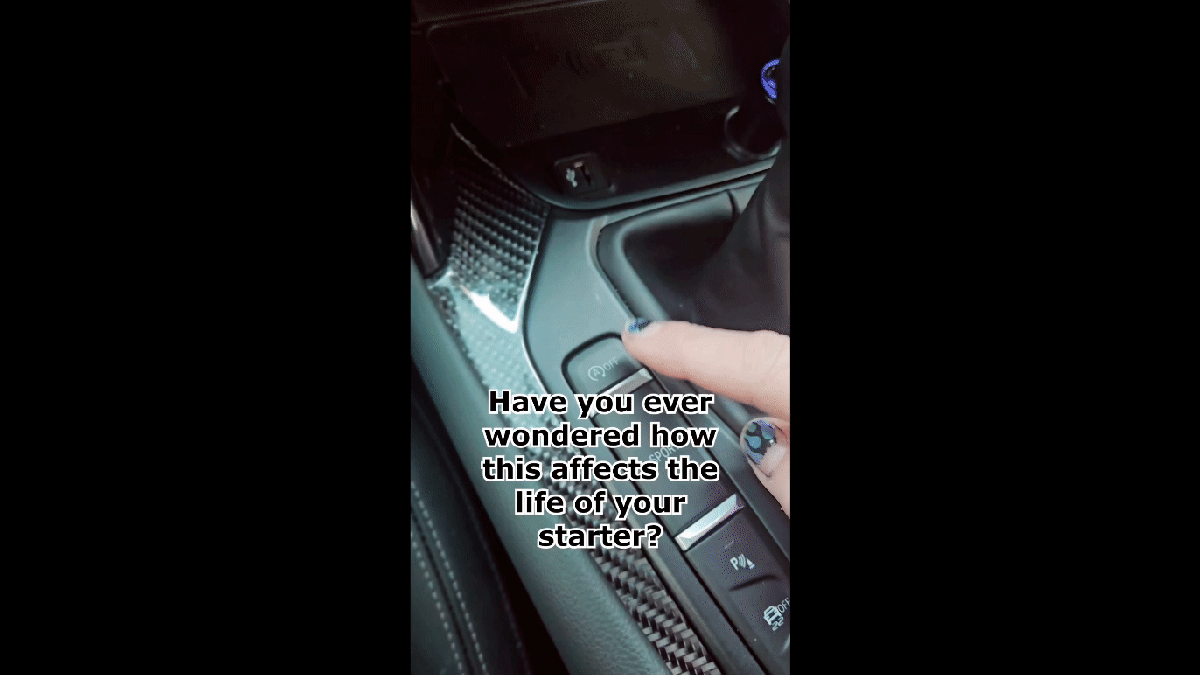Automatic start/stop systems help to mitigate tailpipe emissions when idling, but for folks who are concerned about this function affecting the longevity of your starter motor, Toyota built-in a predetermined number of cycles before throwing a check engine light.
Faye Hadley, a certified ASE Master Technician and social media influencer, shared a video about the number of starts that a Toyota equipped with the automatic start/stop function will allow before throwing a check engine light indicating that it needs a replacement.
I’ll ruin it for you if you haven’t checked yet;, Toyota will allow 384,000 restarts before throwing a code. If the starter motor is ever replaced before this milestone, technicians have to reset this measurement, giving your starter motor a maximum lifetime of 384,000 restarts.
To contextualize that number, 384,000 restarts equates to more-than 21 starts every single day for 50 years. Now, this doesn’t necessarily mean that the starter motors will last that many cycles, but that’s the built-in point when Toyota requires your starter to be replaced.
Volkswagen was the first company to introduce a production start-stop system on the European market 1983 VW Polo Formel E, and some automakers claim this system boosts fuel economy by up-to 10 percent. In reality, it’s hard to measure how much fuel this function saves.
At least start-stop systems have chilled out since they were first introduced, though I still feel like I am in the minority when I say I don’t mind a well-integrated start/stop system. My 2017 Mini Cooper S is equipped with a start/stop system, but thankfully it remembers when I turn the system off and I don’t have to hit the button to deactivate it every time I start my car.

